
The screw conveyor has a long history of usefulness—dating back to the 3rd century BC. Since then, thousands of generations have created flexible screw conveyor systems to initiate smooth and continuous movement of bulk materials. Many industries currently use shafted and shaftless screw conveyors in the municipal water and wastewater industries to convey dewatered biosolids, sludge, screenings, and grit.
Screw Conveyor System Options
- Covers
- End Seal Assembly
- Zero Speed Switch
- Drive Assembly
- Bio-GATE (Slide Gate)
- Bio-DIVERTER (Diverter Valve)
 Numerous cover hold-down mechanisms available, from bolted to spring and toggle clamps
JMS configures equipment to your specific needs
Numerous cover hold-down mechanisms available, from bolted to spring and toggle clamps
JMS configures equipment to your specific needs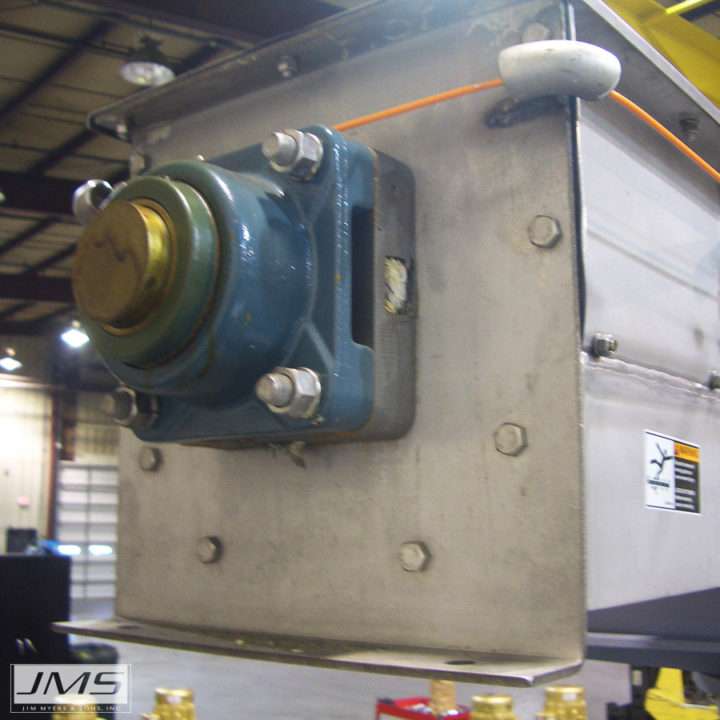 Seal assembly prevents leakage at the shaft-trough interface
Our extensive leak prevention experience means the best seal arrangement for your application
Seal assembly prevents leakage at the shaft-trough interface
Our extensive leak prevention experience means the best seal arrangement for your application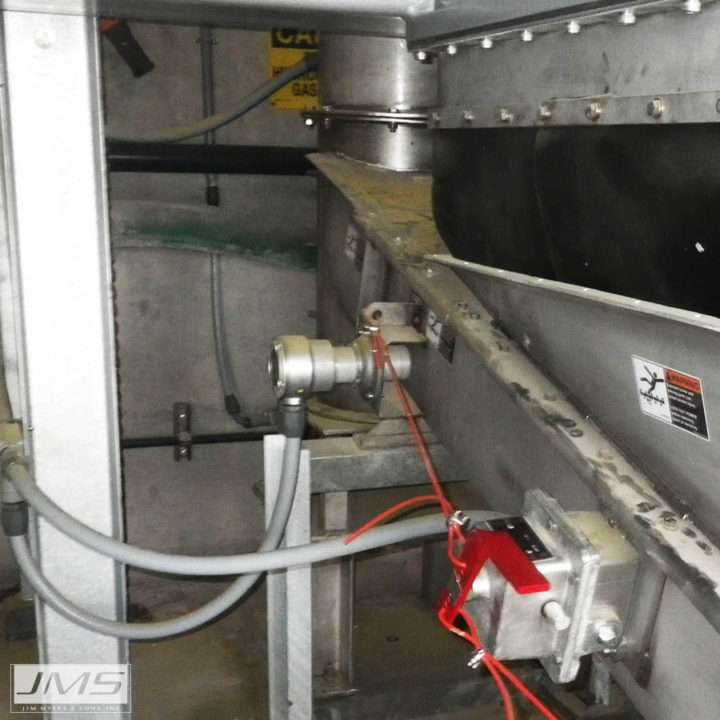 Protects equipment and process
Contacting and non-contacting types
Increase process reliability and lower maintenance costs
Protects equipment and process
Contacting and non-contacting types
Increase process reliability and lower maintenance costs 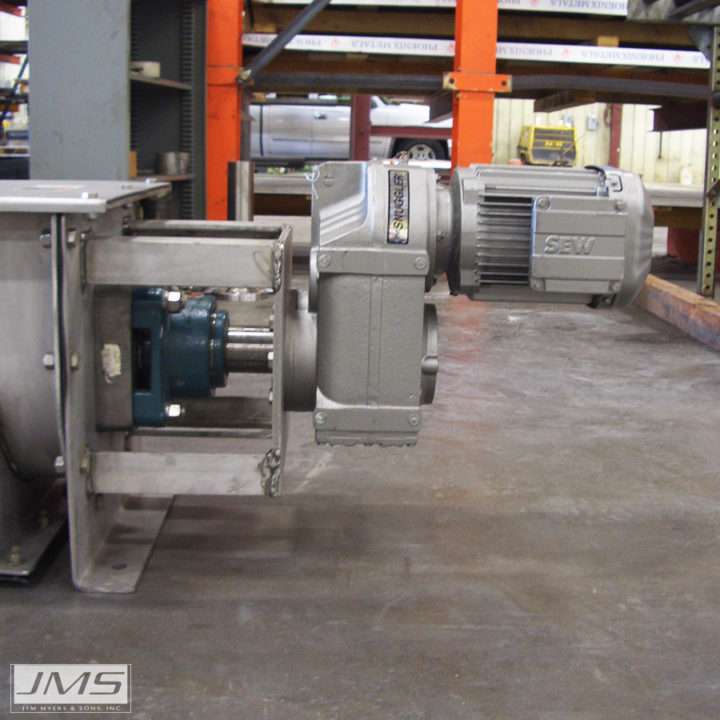 Standoff bracket keeps material from entering the gearbox
Upgraded for heavy operation and suitable for wash-down duty
Standoff bracket keeps material from entering the gearbox
Upgraded for heavy operation and suitable for wash-down duty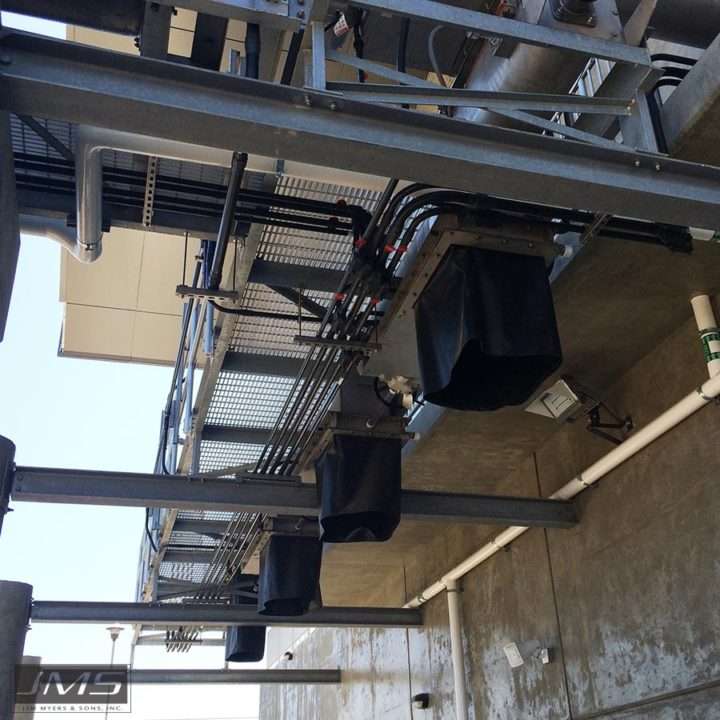 For screw conveyors with multiple discharge points
Stainless steel materials
Manual handwheel or electric, pneumatic, or hydraulic actuator
For screw conveyors with multiple discharge points
Stainless steel materials
Manual handwheel or electric, pneumatic, or hydraulic actuator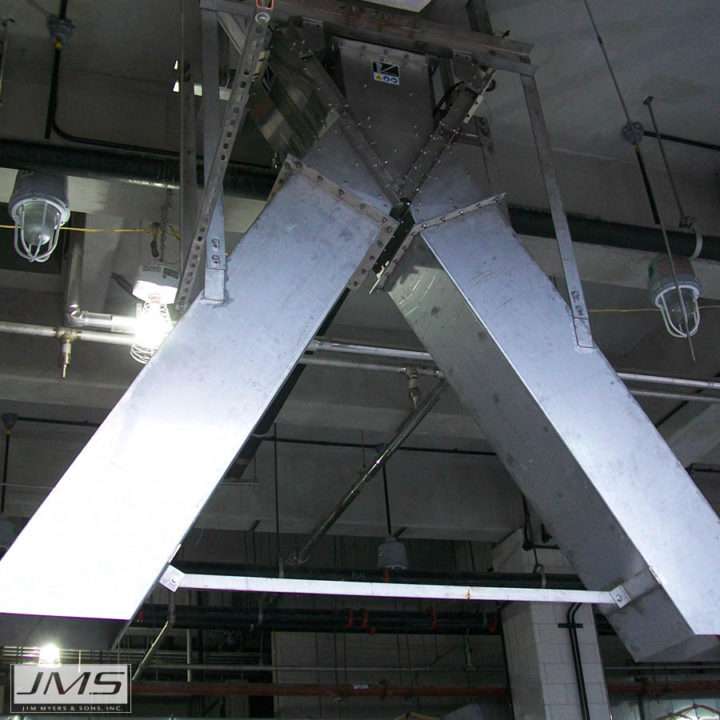 Used with screw conveyors with multiple discharge points
Stainless steel materials
Manual handwheel or electric, pneumatic, or hydraulic actuator
Used with screw conveyors with multiple discharge points
Stainless steel materials
Manual handwheel or electric, pneumatic, or hydraulic actuatorScrew Types
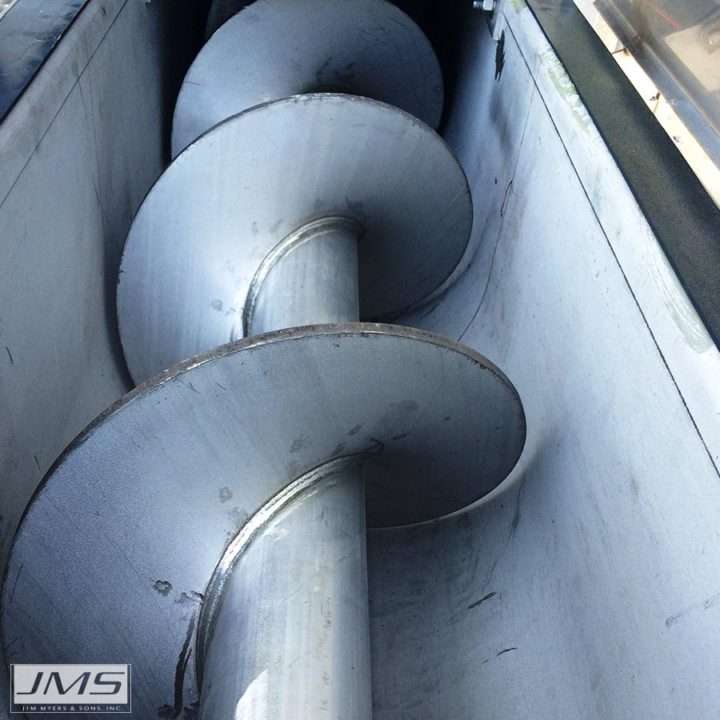 A robust, versatile option for highly abrasive and viscous materials. The best choice for systems that need reversing capabilities.
A robust, versatile option for highly abrasive and viscous materials. The best choice for systems that need reversing capabilities.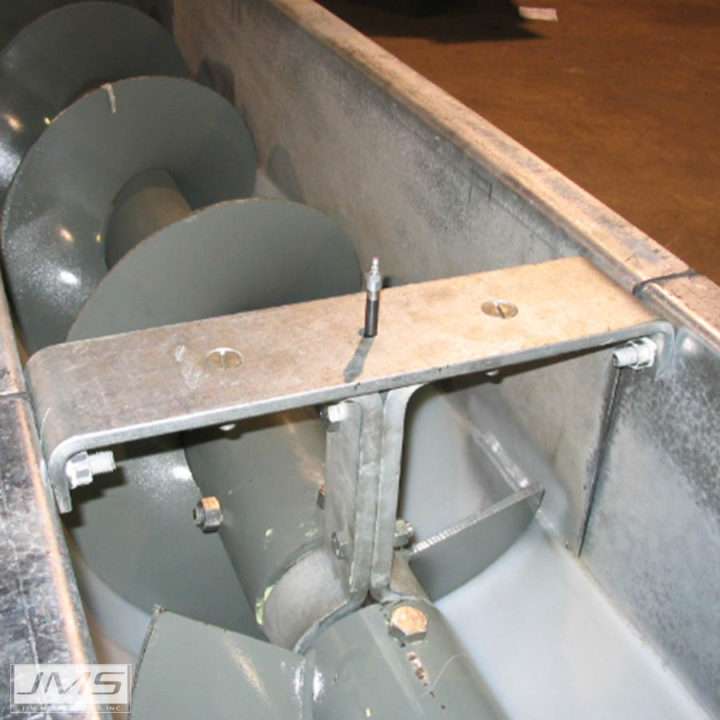 Designed for flush mounting inside the trough, the CEMA 22 promotes contaminant-proof operation, reducing the obstruction of material flow in high-capacity conveyors.
Designed for flush mounting inside the trough, the CEMA 22 promotes contaminant-proof operation, reducing the obstruction of material flow in high-capacity conveyors.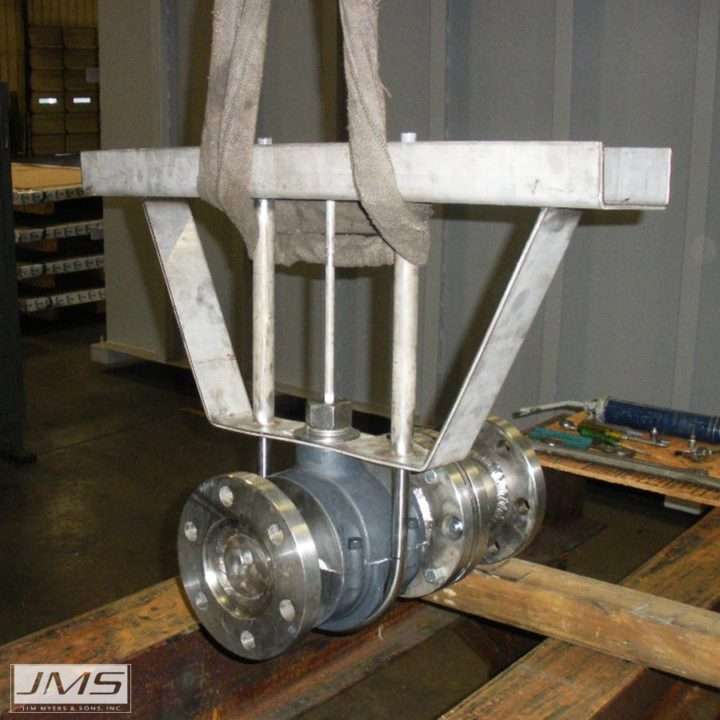 This JMS stainless steel flexible element accommodates misalignment of the shaft with a longer service life than a standard CEMA 226 journal bearing.
This JMS stainless steel flexible element accommodates misalignment of the shaft with a longer service life than a standard CEMA 226 journal bearing.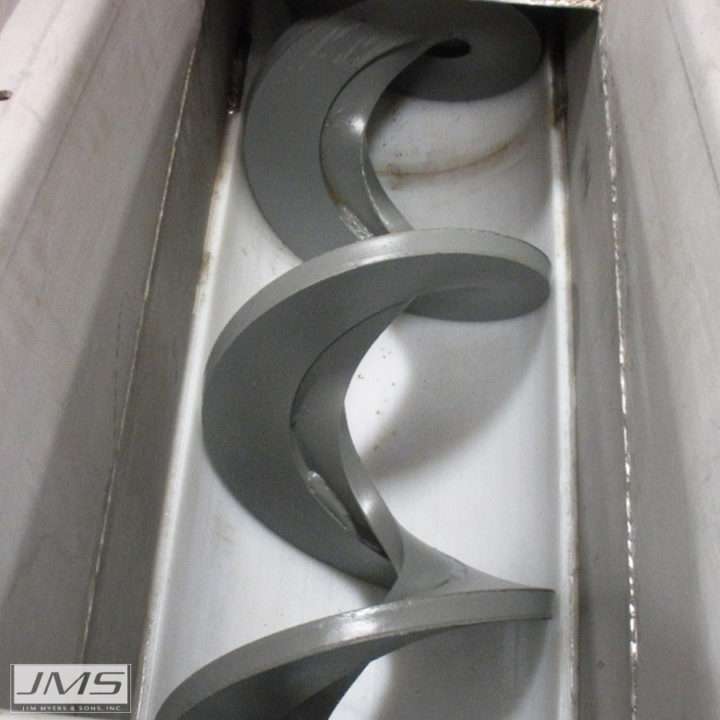 In this design, spirals are formed from nickel-alloy steel with high hardness providing corrosion and abrasion resistance while eliminating hanger bearings.
In this design, spirals are formed from nickel-alloy steel with high hardness providing corrosion and abrasion resistance while eliminating hanger bearings.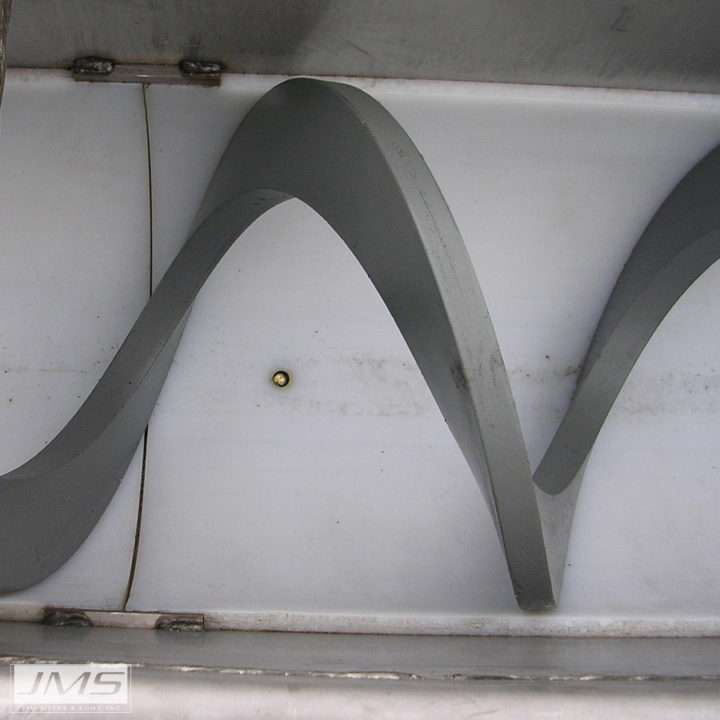 Specialty ultra-high molecular weight, two-color liners offer a visual indication of wear. Premium blends and abrasion-resistant wear bars extend working life.
Specialty ultra-high molecular weight, two-color liners offer a visual indication of wear. Premium blends and abrasion-resistant wear bars extend working life.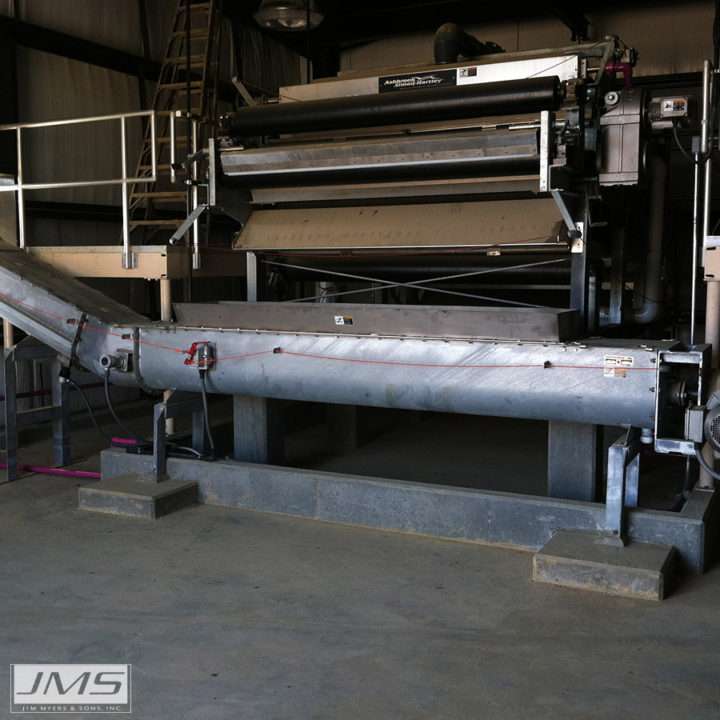 Two shaftless conveyors are connected with no required end bearing, reducing required elevation and simplifying transfers.
Two shaftless conveyors are connected with no required end bearing, reducing required elevation and simplifying transfers.Key features
- Shafted and shaftless designs in several configurations and live bottom
- Perfect for congested locations
- Wide range of capabilities with multiple inlets and discharges as needed
- Resistant to high temperature, abrasives, and sticky materials
- Vast capacity practical to mix or meter materials
- Special safety features
- Heat tracing and insulation are available for any system
- Automatic central grease lubrication ensures longer service life
Additional Products
Related Videos
Success Story
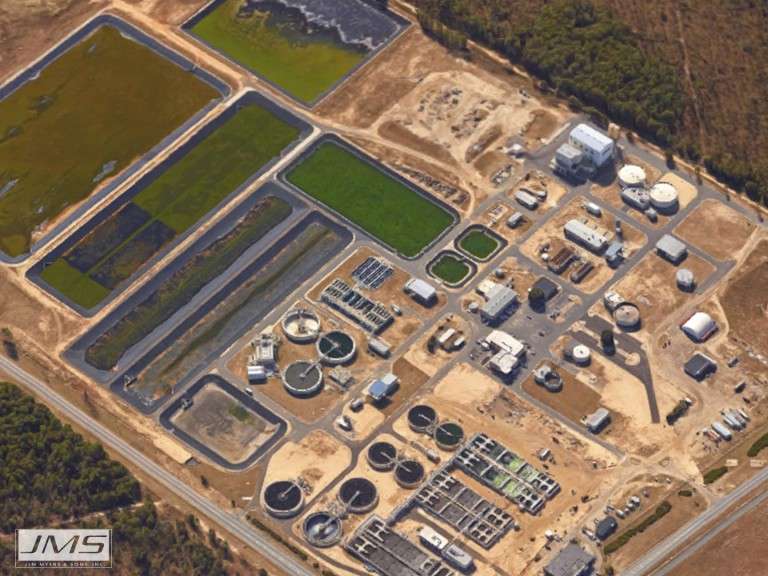
Nestled in the rolling hills of northwest Florida, Tallahassee is the home of Wakulla Springs, one of the world’s largest freshwater springs. The shallow aquifer is vulnerable to pollution, including stormwater runoff and nitrates from wastewater treatment. The city of Tallahassee’s main wastewater treatment plant, Thomas P. Smith WRF, is located near the springs.
In the early 2000s, the city began a study to determine how to improve reuse water quality and protect the water of Wakulla Springs. Under the guidance of engineering giant Hazen and Sawyer, the city developed a plan for upgrading the system, including biosolids separation and drying for eventual use as a class A biosolid.
The conveyance of biosolids within the dewatered sludge building to the dryer building was an essential part of the process, so the city purchased six JMS Bio-SCREWs of various lengths and configurations. After three years of operation, Warren Shepherd, the long-time Manager of Biosolids, reports that all conveyors have run full-time without issues. Shepherd notes, “I could not be more pleased with the equipment.”
